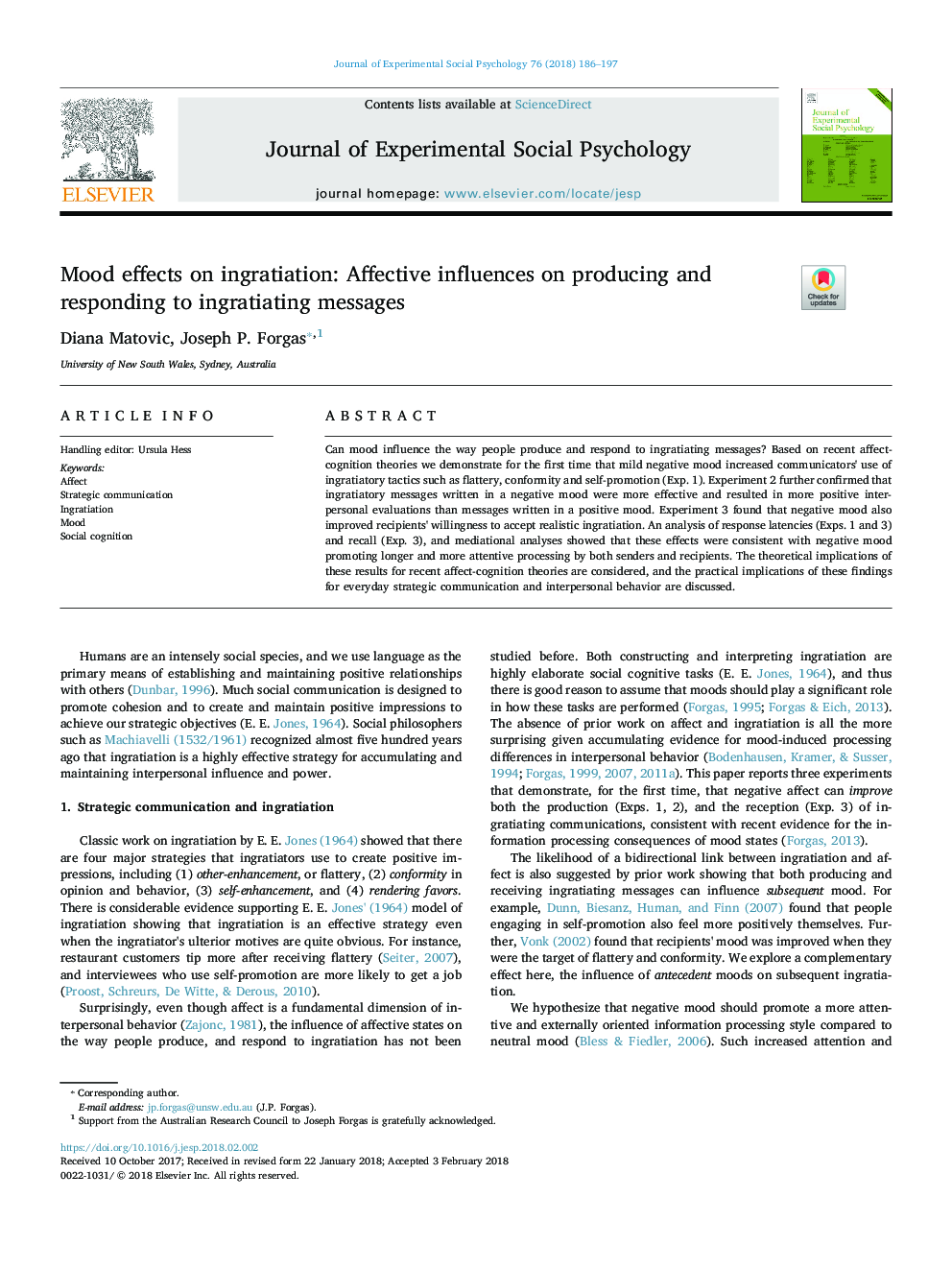| Article ID | Journal | Published Year | Pages | File Type |
|---|---|---|---|---|
| 7324102 | Journal of Experimental Social Psychology | 2018 | 12 Pages |
Abstract
Can mood influence the way people produce and respond to ingratiating messages? Based on recent affect-cognition theories we demonstrate for the first time that mild negative mood increased communicators' use of ingratiatory tactics such as flattery, conformity and self-promotion (Exp. 1). Experiment 2 further confirmed that ingratiatory messages written in a negative mood were more effective and resulted in more positive interpersonal evaluations than messages written in a positive mood. Experiment 3 found that negative mood also improved recipients' willingness to accept realistic ingratiation. An analysis of response latencies (Exps. 1 and 3) and recall (Exp. 3), and mediational analyses showed that these effects were consistent with negative mood promoting longer and more attentive processing by both senders and recipients. The theoretical implications of these results for recent affect-cognition theories are considered, and the practical implications of these findings for everyday strategic communication and interpersonal behavior are discussed.
Related Topics
Life Sciences
Neuroscience
Behavioral Neuroscience
Authors
Diana Matovic, Joseph P. Forgas,
